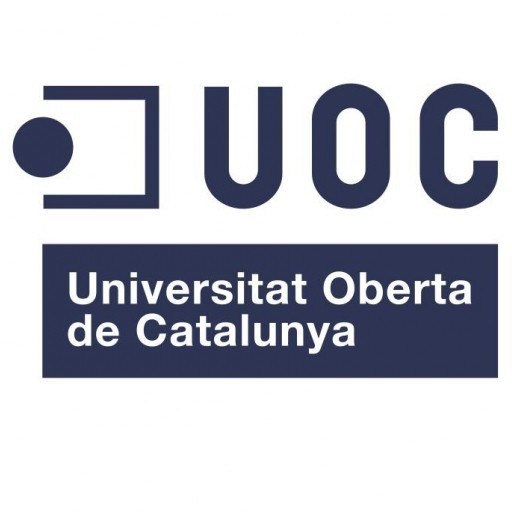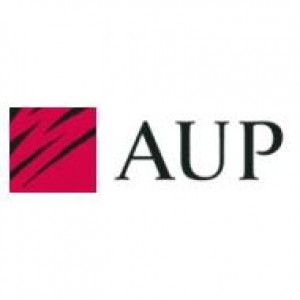Photos of university / #soasuni
The BA Islamic Studies at SOAS University of London offers a comprehensive and multidisciplinary exploration of Islam as a religion, culture, and tradition. This programme is designed to provide students with a deep understanding of the historical, theological, social, and political dimensions of Islam and Muslim societies across the world. Students will engage with a diverse range of topics including Islamic theology, law, history, literature, philosophy, and contemporary issues facing Muslim communities today. The curriculum combines rigorous academic study with opportunities for fieldwork, language acquisition, and critical analysis, enabling students to develop a well-rounded perspective on Islamic civilization from its origins to the modern era. Throughout the programme, students are encouraged to critically examine various interpretations and practices within Islam, as well as its interactions with other religions and cultures. The programme also emphasizes the importance of primary sources, including classical texts and contemporary writings, fostering skills in original research and critical thinking. With its location in London, SOAS offers unrivalled access to a vibrant Muslim community and numerous resources, including libraries, archives, and expert faculty members specializing in Middle Eastern, South Asian, and African Studies. Graduates of the BA Islamic Studies are well-equipped for careers in academia, journalism, public policy, NGO work, and cultural exchange, or for further postgraduate study. The programme aims to produce graduates with not only a comprehensive understanding of Islam but also the ability to think critically, analyse complex issues, and communicate effectively in diverse contexts. By integrating academic rigor with practical engagement, the BA Islamic Studies prepares students to contribute thoughtfully and knowledgeably to contemporary debates and issues surrounding Islam and Muslim societies worldwide.
Discover the comprehensive and interdisciplinary field of Islamic Studies at SOAS University of London. Our programme is designed to provide students with a deep understanding of the historical, cultural, religious, and socio-political aspects of Islam and Muslim societies around the world. Through a diverse curriculum, students will explore the rich traditions, texts, and practices of Islam, while also engaging with contemporary issues facing Muslim communities in various contexts. The programme fosters critical thinking and analytical skills, enabling students to examine complex topics such as Islamic philosophy, law, politics, and modern reform movements. Students will have the opportunity to study classical Arabic, Persian, or other relevant languages, enhancing their ability to engage directly with primary sources. The programme offers a variety of modules covering areas such as Islamic history, theology, mysticism, gender, and media representations of Islam. Additionally, students can participate in fieldwork, internships, and seminars with leading scholars, ensuring a well-rounded and practical learning experience. The interdisciplinary approach integrates insights from anthropology, history, religious studies, and politics, preparing graduates for careers in academia, diplomacy, journalism, NGOs, and cultural exchange. Our vibrant academic community supports diverse perspectives and encourages critical dialogue on issues affecting Muslim societies and global Islam today. Graduates of the programme will be equipped with the analytical tools, language skills, and intercultural awareness necessary to excel in a rapidly changing world where understanding Islam and Muslim cultures is increasingly vital. Whether pursuing further research or entering professional sectors, students will benefit from SOAS’s unique position as a leading institution dedicated to the study of Asia, Africa, and their diasporas. Join us to explore the dynamic, influential, and multifaceted world of Islamic Studies at SOAS University of London.
The BA Islamic Studies program at SOAS University of London is designed to provide students with a comprehensive understanding of Islamic civilization, history, and contemporary issues. The program requires students to complete a combination of core modules and elective courses, totaling a minimum of 180 UK credits over three years. Throughout the course, students are expected to develop proficiency in at least one relevant language, such as Arabic, Turkish, or Persian, by undertaking language modules tailored to their interests and prior experience. Core modules include introductory and advanced courses in Islamic history, theology, law, and culture, alongside modules focusing on contemporary issues affecting Muslim communities worldwide. Students are encouraged to undertake independent research projects and participate in seminars, fostering critical thinking and analytical skills. The program also emphasizes interdisciplinary approaches, integrating perspectives from philosophy, politics, and sociology to enable a nuanced understanding of Islam in various contexts. Assessment methods include essays, examinations, presentations, and research dissertations, with opportunities for fieldwork and placements in related organizations. To graduate, students must achieve the required credits and demonstrate mastery of their chosen language(s). Optional modules allow specialization in areas such as Sufism, Islamic art and architecture, or gender studies within Islam. The program aims to prepare graduates for careers in academia, policy-making, intercultural communication, journalism, and community work. Continuous support from academic staff and access to specialized resources contribute to a rigorous academic environment. Overall, the Islamic Studies program at SOAS combines historical foundations with contemporary analysis, equipping students with the knowledge and skills necessary to engage critically with Islamic issues globally.
The Islamic Studies program at SOAS University of London offers various financing options to support students throughout their studies. Funding opportunities include scholarships, bursaries, and financial aid tailored specifically for postgraduate students pursuing degrees in this discipline. Scholarships such as the SOAS Masters Scholarships are highly competitive and are awarded based on academic merit and potential. These scholarships often cover full or partial tuition fees and sometimes include maintenance stipends to assist with living costs. Additionally, students may be eligible for external funding from government bodies, charitable organizations, and international agencies that support students studying Islamic Studies or related fields.
SOAS also provides information on student loans available through government schemes, which can be used to finance tuition fees and living expenses. For international students, there may be specific scholarship programmes aimed at promoting global diversity and academic excellence in Islamic Studies. Some funding options are renewable, contingent upon academic performance in subsequent years of study, ensuring ongoing financial support for qualified students.
Students are encouraged to apply early and review eligibility criteria carefully to maximize their chances of receiving funding. The university’s financial aid office offers guidance on the application process for scholarships and other financial support, helping students navigate their options effectively. Besides externally sourced funding, many students choose part-time work opportunities available on or near campus to supplement their finances during their studies.
Overall, the financing studies for the Islamic Studies program at SOAS are designed to make postgraduate education accessible and affordable, enabling students from diverse backgrounds to pursue their academic and career ambitions in the field of Islamic Studies.
The BA Islamic Studies programme at SOAS University of London offers students an in-depth understanding of the history, culture, theology, and practices of Islam across different regions and periods. This course is designed to provide a comprehensive overview of Islamic civilizations, encouraging critical engagement with the diverse interpretations and expressions of Islam in societies worldwide. The curriculum includes core modules focusing on Islamic theology, law, history, Arabic language, and contemporary issues facing Muslim communities. Students exploring this programme will also examine the relationship between Islam and politics, art, philosophy, and the social sciences.
The programme is structured to combine both traditional and contemporary perspectives, offering students a balanced view of Islamic texts and traditions alongside modern scholarly debates. As part of SOAS’s commitment to area studies and languages, students will have opportunities to develop proficiency in Arabic, which is essential for advanced Islamic studies. The programme emphasizes a global perspective, covering Islamic cultures in the Middle East, North Africa, South Asia, Southeast Asia, and the diaspora communities worldwide.
Students are encouraged to engage with primary sources and participate in various seminars, workshops, and field studies. There are also options for studying abroad and participating in internships that enhance practical understanding of Islamic societies. Graduates of the program are well-equipped for careers in academia, journalism, international organizations, government, and nonprofit sectors, particularly those focusing on the Muslim world or intercultural dialogue.
The programme aims to foster analytical skills, cultural awareness, and an informed understanding of religious phenomena within historical and contemporary contexts. Supportive academic staff, specialist libraries, and access to extensive archives ensure that students can undertake rigorous research projects. With its interdisciplinary approach, the BA Islamic Studies at SOAS prepares students to critically analyze issues related to Islam and its role in the modern world, with an emphasis on critical thinking, intercultural understanding, and academic excellence.








